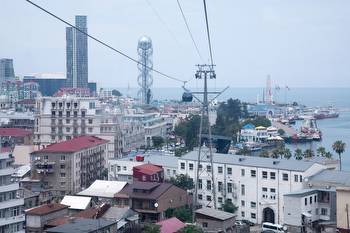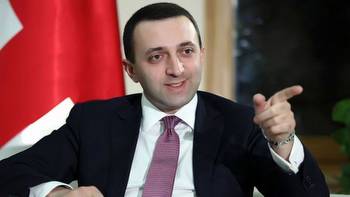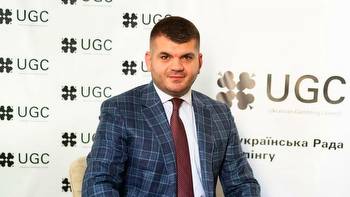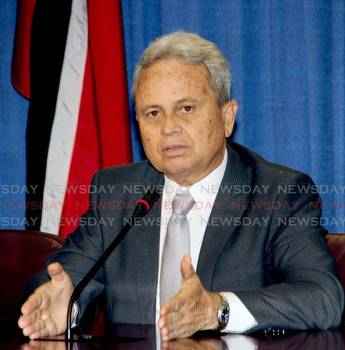Georgian government moves to rein in gambling

Giorgi started gambling when he was 14. He started small, betting one lari (about $0.30), on online roulette. Soon, though, he was playing poker, roulette, and slots online, at a friend’s home, and only going to school to try to borrow money from his classmates.
A big win might amount to 500 lari ($160), which he would spend on some new clothes, cigarettes, and treating his friends to shawarmas. The rest he would gamble again.
“I would steal jewelry from home to pawn it, and ask friends and relatives for money,” Giorgi, who asked that his real name not be used, told Eurasianet. “My debts were getting bigger and bigger, but I thought I would have a lucky break and win big. But now I see that I just couldn’t stop.” Eventually, his debt reached 19,000 lari and his parents were forced to sell some of their property to pay it off.
Giorgi’s story is far from unique. While there are no official data on the scale of gambling addiction in Georgia, most Georgians know someone struggling with the disorder. Anti-gambling groups estimate that between 350,000 and 600,000 Georgians – out of a population of under 4 million – are problem gamblers.
Gambling is big business in Georgia, amounting to 32 billion lari (over $10 billion) in turnover in 2020 – up from just 30 million lari in 2006. The industry pays around 300 million lari ($98 million) in taxes annually and employs close to 10,000 people. But with the social costs mounting, the government is trying to rein it in.
Georgia’s gambling sector began to take off in the 2000s, when liberalizing economic reforms – loosened regulations, low taxes, and easy availability of licenses – laid the groundwork. Casinos sprouted up in the Black Sea town of Batumi, capitalizing on demand from nearby Turkey, where gambling is illegal.
But the real boom came with online gambling, with mobile-friendly websites offering sports betting – on soccer, basketball, even cricket – as well as table games, slots, and poker. Even in 2020, when pandemic shutdowns meant much of the Georgian economy contracted and casinos were closed for part of the year, the gambling sector grew 23 percent over the previous year.
Advertising of gambling services has become pervasive on television, billboards, and online. Georgian mobile phone users regularly receive spam text messages like “Register, instantly get 50 FreeSpins in SteadyGames Slots and 250 FreeSpins on your first deposit!”
A study by Georgia’s National Center for Disease Control and Public Health found that 20 percent of Georgian high school students (28 percent of boys and 5 percent of girls) are “excessive gamblers,” which it defines based on the frequency with which they bet. Twelve percent (15 percent of boys and 5 percent of girls) are “problem gamblers,” meaning they lie or otherwise engage in problematic behavior because of gambling.
Another study, by the Tbilisi-based Gambling Research and Ludomania Prevention Center, which surveyed 500 school students aged 14 to 18, found that most learn about online gambling through web advertisements (75 percent), text message ads (54 percent), billboards (47 percent) and television (37 percent).
Until recently, Georgian law forbade anyone under 18 from gambling online and those under 21 from entering a casino. The government introduced new regulations in 2020 aimed at tightening verification of gamblers’ ages, but resourceful youth can get around the regulations by setting up accounts using their parents’ or other people’s data.
Now, though, the government is trying to take a more forceful stand, implementing restrictions that could limit access to gambling to around a million adult citizens.
A new law, passed by parliament on December 22, forbids gambling for several classes of people, including those receiving government assistance, government workers, and anyone under 25.The law also mandates the Revenue Service to make an “addicts list,” which will include both people who self-identify as gambling addicts and those whose relatives get a court order declaring them to be an addict.
Nearly all advertisements for gambling, including on television, outdoors, and on websites, will be banned. The only form of advertisement allowed will be sponsorship of sports teams, athletes, or leagues.
Most significantly, the law also will raise a variety of taxes related to the gambling sector, amounting to a total tax increase of up to 70 percent.
But the law has run into opposition from many who have benefited from gambling revenues.
Athletes and sports teams, in particular, get sponsored by gambling companies in exchange for wearing branded clothing or doing ads.
Several prominent Georgian athletes gathered at a December 20 press conference organized by the Georgian Gambling Association, a trade group, to express their opposition to the law. The association says that Georgian sports got 20 million lari ($6.5 million) from gambling in 2021, but that even as sports sponsorships remain legal, the increased taxes will mean that the companies will be forced to pare expenses and will have less to spend on sports.
One of the participants at the press conference was Levan Saginashvili, a seven-time world and six-time European champion in arm wrestling, popularly known as “Georgian Hulk.”
“I will either have to either leave the sport or leave the country because I have no other stable income” other than sponsorship from gambling companies, Saginashvili told reporters.
“The gambling business had supported Georgian athletes with dignity,” said another prominent athlete, world sambo champion Nino Odzelashvili.
Another sector that stands to lose out is the media, as television stations rely heavily on revenue from gambling ads.
The NGO Media Advocacy Coalition criticized the parliament for passing the law hastily and expressed concern that it didn’t consider the financial impact on broadcasters.
“There is a view that the bill would lead to a further loss of independence for broadcasters,” the coalition said in a . “An examination of this issue is inconceivable without a full discussion of the bill.”
In response to the criticism, the implementation of the law was postponed from January 1 to March 1.





































